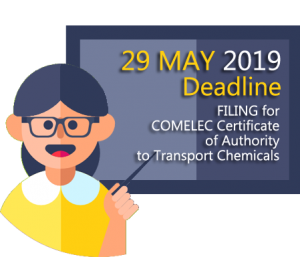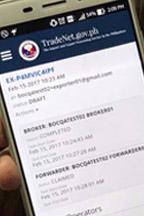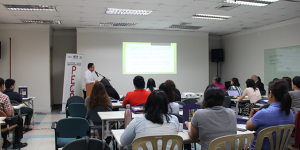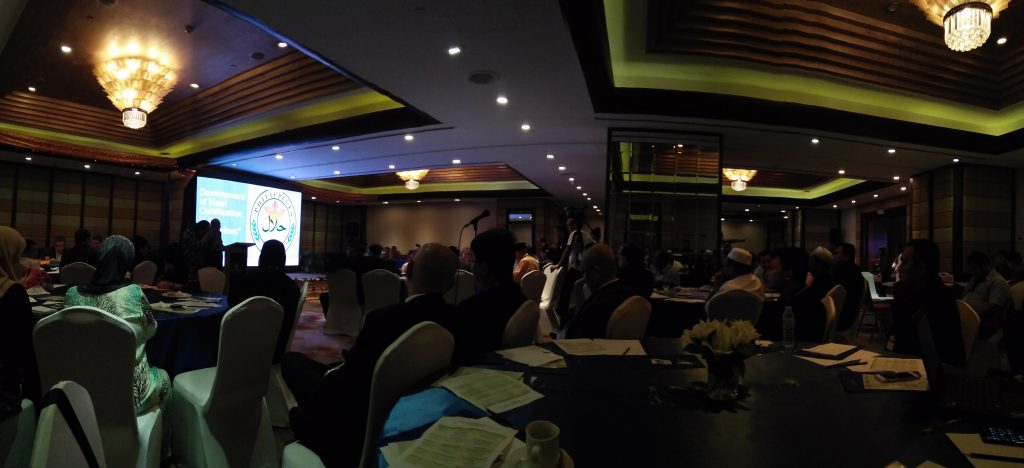Exporters and manufacturers are urged by the Strategic Trade Management Office (STMO) to conduct risk assessment of their products that may be of dual-use goods, otherwise known as strategic goods.
Dual-use goods are items, software, or technology which can be used for both civil and military end-use. These goods are listed in the National Strategic Goods List (NSGL). Other types of strategic goods are military goods and nationally controlled goods.
Strategic goods is defined by the Strategic Trade Management Act (STMA) as “products that for security reasons or due to international agreements, are considered to be of such military importance that their export is either prohibited altogether or subject to specific conditions”. These products are “generally suitable to be used for military purposes or for the production of WMD (Weapons of Mass Destruction)”.
To determine if the goods are of dual-use, exporters may refer to the NSGL, ask the product manufacturer or request classification from the STMO.
Exporters of dual-use goods are required to register and secure an exporter authorization or license from the STMO. Registration of exporters, as announced by the STMO in a forum, will be in the last quarter of 2019, while the exporter authorization is scheduled to be implemented in the third quarter of 2020.
The STMO, a bureau under the Department of Trade and Industry, is mandated by the STMA to regulate such goods by issuing “authorization/ licenses for the export, import, re-export, transit, transshipment, and provision of related services such as brokering, transporting, financing and providing technical assistance of strategic goods”.
Also covered by the STMA are the transit, transshipment, re-export, import, and reassignment of strategic goods. The schedule of regulating such activities is still to be announced by the STMO.
Non-compliance of the Act by the exporters will risk them seizure, delays, fines, imprisonment and inclusion in the denials list/ watchlist.
The STMA, otherwise known as Republic Act No. 10697, “An Act Preventing the Proliferation of Weapons of Mass Destruction by Managing the Trade in Strategic Goods, the Provision of Related Services, and for Other Purposes,” was enacted to enforce measures to establish domestic controls to prevent the proliferation of weapons of mass destruction (WMD) and their means of delivery from or within the Philippines. (ARB)



 the TradeNet system and attach all documentary requirements by uploading it to the system. If approved, the exporters will receive an email containing a downloadable and printable file for the e-CO. Otherwise, the Exporter/s will be informed of the reason for disapproval through email and may file another application for e-CO.Since the full electronic sharing of e-CO among AMS is not yet operational and while the AMS are addressing all technical failures, “the Exporter shall download then print the e-ATIGA Form D, place his or her signature in the appropriate space, and submit the system-generated ATIGA Form D to the Bureau (BOC) for manual execution of signature and seal”.
the TradeNet system and attach all documentary requirements by uploading it to the system. If approved, the exporters will receive an email containing a downloadable and printable file for the e-CO. Otherwise, the Exporter/s will be informed of the reason for disapproval through email and may file another application for e-CO.Since the full electronic sharing of e-CO among AMS is not yet operational and while the AMS are addressing all technical failures, “the Exporter shall download then print the e-ATIGA Form D, place his or her signature in the appropriate space, and submit the system-generated ATIGA Form D to the Bureau (BOC) for manual execution of signature and seal”. Entities engaged in the transport of chemicals are reminded to double check and ensure compliance of the application requirements prior to submission to Commission on Elections (COMELEC) in securing the Certificate of Authority to Transport (CA-TT) chemicals. The completeness of documents submitted will lessen if not totally eliminate the chance of denial of application during the gun ban period.
Entities engaged in the transport of chemicals are reminded to double check and ensure compliance of the application requirements prior to submission to Commission on Elections (COMELEC) in securing the Certificate of Authority to Transport (CA-TT) chemicals. The completeness of documents submitted will lessen if not totally eliminate the chance of denial of application during the gun ban period.

 Government efforts for the development and promotion of Philippine Halal Industry are underway to tap the rising demand on Halal products and services. The halal food industry is estimated to reach 3 trillion in 2021 that can be tapped by the Philippines.
Government efforts for the development and promotion of Philippine Halal Industry are underway to tap the rising demand on Halal products and services. The halal food industry is estimated to reach 3 trillion in 2021 that can be tapped by the Philippines.